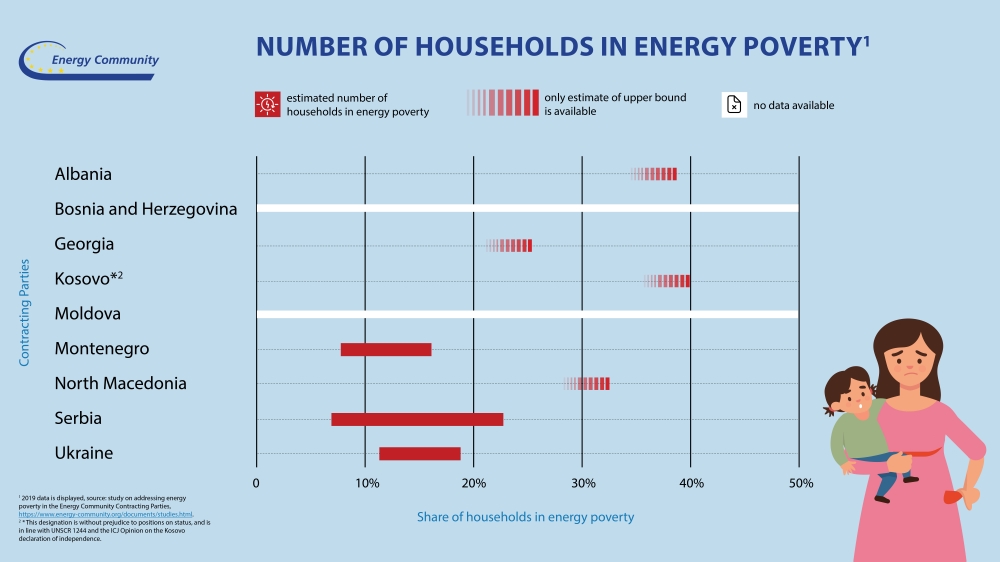Vulnerable consumers definition and schemes in place
Kosovo* has only a general definition of consumers in need without precise criteria and established measures. The study proposes adoption of a definition on energy poverty that allows the authorities to measure the extent of energy poverty and to pursue measures to alleviate it.
Measures provided in the corresponding Kosovo* legal acts rely on the following information:
1. Process of implementing electricity subsidies
Inputs and clarifications are received from the Ministry of Labour and Social Welfare (MLSW). During the reporting period, a cooperation agreement was established between the former Ministry of Finance and Transfers (MFT), the Kosovo* Electricity Distribution and Supply Company (KEDS) and the Kosovo* Electricity Supply Company (KESCO), in order to subsidize electricity for families benefiting from the Social Assistance Scheme (SNS), Martyrs’ Families and War Invalids Scheme (FDIL), Blind Persons Scheme (SPV) and the Paraplegic and Tetraplegic Scheme (SPPT) for 2019. The agreement was reached on 2 June 2020.
EUR 4.5 million were allocated under the Agreement. The number of beneficiaries include 36,648 families, with 23,316 families from the SNS, 10,314 families from the FDIL scheme, 967 families from the SPV scheme and 1,953 families from the SPPT scheme. EUR 4,470,619 were spent for the first part, and the remaining EUR 29,381 for complaints. This activity has been completed.
2. Additional action/process
A working group was established at MLSW in 2019 to devise and develop the program Protection of Consumers in Need. The group is led by the MLSW representative and the Energy Regulatory Office (ERO) representative as well as participants from other relevant Kosovo* institutions. The Working Group in 2020 was supported by the expertise of the World Bank. Accordingly, a study was conducted by the World Bank, which assisted the working group in devising the protection program for consumers in need. In 2020, the MLSW, as the responsible stakeholder, was assisted by the World Bank which provided local expertise in drafting the mentioned program document. The working group continues to support the MLSW until the finalization of this document, where after the public consultation procedure, it will be further processed by the MLSW for approval by the Government.

